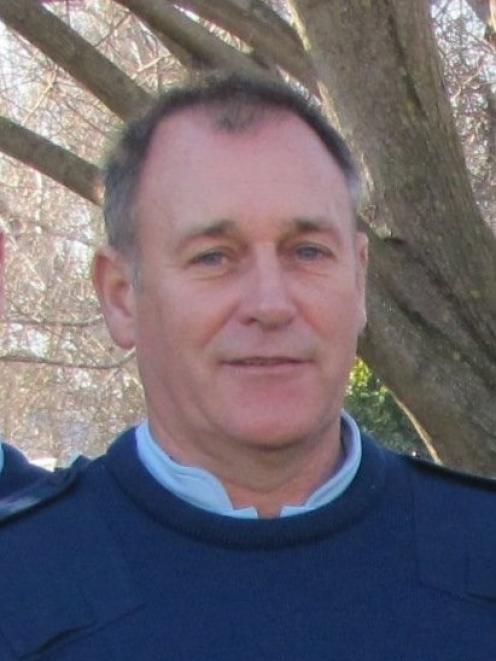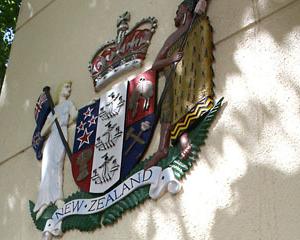
As the season winds down, PIJF court reporter Guy Williams looks at the novel approach a Cromwell policeman and shearer is taking to keep them out of the justice system.
Senior Constable Paddy Henderson has been known to pull wool over the eyes of those he meets on his visits to Central Otago shearing gangs.
Turning up at one shed this past winter in his uniform, he told a shearer working on his stand that it looked like "pretty hard work".
When asked if he had ever wielded a handpiece, Snr Const Henderson said no, but he would give it a go after watching the shearer do a couple more sheep.
"Then I started shearing and he said ‘you bastard, you’ve done this before!’."
He has done it before, starting as a shearing contractor at 21 and working in Central Otago and abroad for over a decade before joining the police in his mid-30s.
He still shears on local lifestyle blocks on his days off.

The outcome of their discussions was an initiative to make regular visits to shearing gangs throughout the peak June to September season.
After testing the water last year, he has ramped up the initiative this season, visiting gangs a couple of days a week.
Snr Const Henderson said the men and women in the industry were "generally good, hard-working people" with skills badly needed by the region’s economy.
However, the transient lifestyle and long hours - more than 80 hours a week when the weather is fine - meant some took a "head in the sand" approach to other stuff going on in their lives.
It could be an unwarranted vehicle, unpaid court fines, driving without a licence, or ignoring a court summons elsewhere in the country.
If not dealt with, such things eventually caught up with them, to the point where they could find themselves in police custody, he said.
His goal was to motivate them to sort those issues out, with an offer to help, before they became increasingly entangled in the justice system.
For example, he could arrange for charges in the North Island to be transferred to the nearest court, refer them to a local non-profit organisation to upgrade their driving licence, or get a budget adviser to help with fines or financial worries.
"I run around after them a wee bit, but I’ve been a shearer and I know what it’s like."
He had put posters up in shearing sheds and quarters, encouraging workers to get in touch if they needed help.
But the most effective approach was to front up, co-ordinating his visits with break times.
"It breaks the ice when I go to the sheds and I actually get on and shear. Then they actually come and talk to you ... they know you’ve been there, done that."
The work was an application of the police "prevention first" model, aimed at preventing crime by engaging with at-risk groups and keeping them out of the courts.
"I want them to know I’m not here to hinder them, I’m here to help as much as I can.
"It would be nice to see them go home at the end of the season with their driving licence upgraded, no court issues and a bit of money in the bank.
"And hopefully, a positive attitude about the police in Central Otago."

‘We’ve got issues’
Alexandra’s Peter Lyon runs Central Otago’s largest shearing contractor business, employing 240 men and women this season.
It is one of the half-dozen major contractors operating between the Waitaki and Clutha, employing about 700 people between them.
About three-quarters of the workers have come from outside the region.
Where once shearing gangs consisted mainly of "young Pakeha farmers’ sons and daughters", they were now about 85% Maori, Mr Lyon said.
"Their culture suits the industry, they’ve got the skills, and it’s pretty much been kept together by the Maori whanau."
But in his experience, the shearing gangs lived to a "slightly different set of rules" than the wider community.
"Law enforcement people don’t hold much fear for them, so they’ll drive their car as long as it goes, and do things like drink and drive without thinking through the consequences."
Most of the issues getting them into trouble were driving offences, vehicle warrants and regos, unpaid fines and failing to show up for court appearances - usually from offending elsewhere in the country.
"We don’t like to admit we’ve got issues, but we do get people coming before the courts who aren’t really bad people."

The prevention approach Snr Const Henderson was taking was the way to go, Mr Lyon said.
Although the police remained firm in enforcing the law - "they don’t let them off anything" - it was worth the effort to try to stop relatively minor issues becoming serious ones.
Some of his staff "freaked out" when Snr Const Henderson turned up, he said.
"But he’ll grab a handpiece and shear a sheep, and that blows the guys away.
"First impressions are a big thing, and they’re practical people and they think ‘he’s not a bad bastard - he can shear a sheep’."








